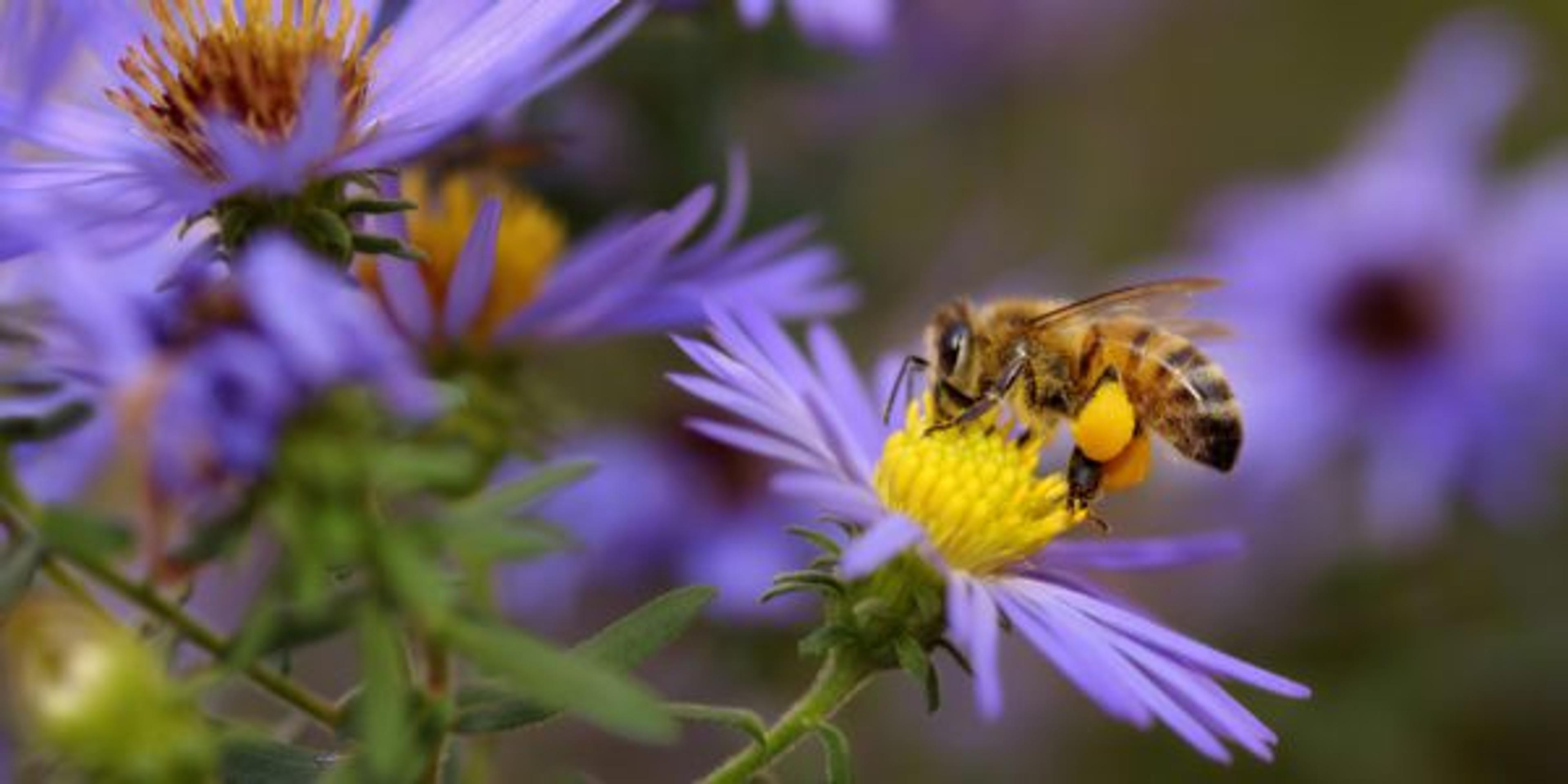Different Types of Bees in Michigan

Jordyn Hardy
| 4 min read

When you think of summertime, what do you think of? Some thoughts might be, beautiful flowers, backyard parties, and maybe even the bees we see flying around our plates.
A bee’s purpose is to pollinate plants that produce our fruits and vegetables. Without bees, many of our beloved foods wouldn’t survive.
Many people confuse bees with wasps and hornets because of the way they appear. When in reality, each species is wildly different. Below, we have broken down the most common types of bees, wasps and hornets in Michigan and how to tell the difference between them.
The four species of bees below work to pollinate our beloved flowers, fruits, and vegetables. They are typically gentle and will only sting to defend their hives.
Honeybees
- What they produce: Honeybees produce honey as well as wax with the help of a beekeeper.
- Activity: These “superorganisms” are very social and are active in the spring, summer and fall seasons.
- Pollination: Honeybees focus on pollinating flowers.
Bumble bees
- What they produce: These fuzzy organisms collect pollen and nectar for the purpose of creating honey. Although, they do not create a surplus of honey. So, no beekeeper is necessary.
- Activity: This type of bee is social, and lives in small hives with less than 200 bees.
- Pollination: Bumble bees vibrate the flowers in order to release pollen. This makes them very useful for pollinating plants in the nightshade family like peppers and tomatoes.
Mason bees
- What they produce: These types of bees do not produce honey. Nor do they have a queen bee. Furthermore, they also use mud to create their cells and not beeswax, which is unique.
- Activity: Mason bees are active in the springtime and are even gentler than honeybees.
- Pollination: Mason bees are talented pollinators! It has been said that a single mason bee can pollinate just as well as 120 honeybees.
Leafcutter bees
- What they produce: Much like the mason bee, leafcutter bees do not produce honey and do not have a queen. Moreover, they use leaves to create cells over beeswax.
- Activity: Leafcutter bees are most active in the summertime, like honey and bumble bees. They are also extremely gentle, so no need to worry about getting too close to their nesting hole.
- Pollination: These bees are homebodies! They stay close to home while foraging for pollen and nectar and do not live in a colony or hive, unlike other bees. Also, the leafcutter bee is retrofitted with a hairy abdomen that is excellent for caring for pollen.
Hornets and Wasps
Hornets and wasps physically resemble bees but are very different.
For instance, hornets and wasps are carnivorous. Meaning, that they feed on other insects. Whereas bees are vegetarian and only consume nectar and pollen.
Hornets and wasps are also much more aggressive than bees and can sting more than one time. This makes them much more likely to sting.
Some other facts that set them apart from bees are the fact that they are darker in color, typically feed on sweets and garbage, and live-in enclosed nests above ground. Some of the most common types of hornets or wasps are yellowjackets or bald-face hornets.
Conservation and Education
You may be asking yourself; how do I protect bees? While it is not advised to intervene in a hive unless you are a professional, there are some things you can do at home to promote pollination:
- Plant native plants: Bees need places to pollinate and continue to work.
- Place a water bowl in your backyard: It is important that bees have places to land, but also, they have a clean and safe water source.
- Avoid pesticides: Pesticides have the ability to not only hurt bees but other important pollinators in our ecosystem.
- Get involved: One of the best ways to promote conservation is by spreading the word. By dispelling myths about bees, you are promoting the protection of our pollinators.
If you’d like to learn more about bee conservation in Michigan, check out Beesinthed.com.
Keep reading:
Photo credit: Getty Images





